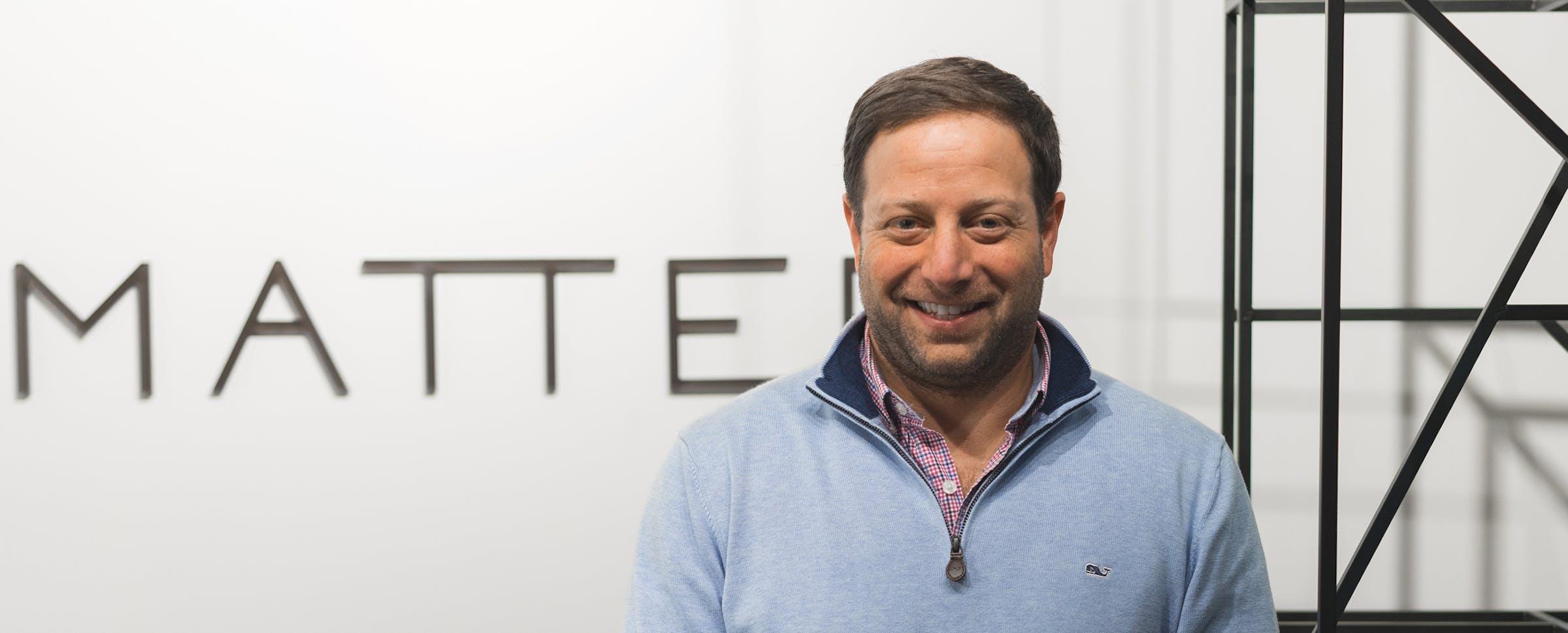One entrepreneur’s anthropological fascination with health, poverty, and marijuana
An Interview with Green Thumb Industries CEO Pete Kadens
6/15/2018 update: Congrats to Pete Kadens and Green Thumb Industries on going public in Canada. Read more.
Pete Kadens is running a serious business.
Pete is CEO of Green Thumb Industries (GTI), one of the fastest growing medical cannabis companies in the United States with cultivation centers and retail stores in five states and over $75M raised to fund further expansion.
Livongo Health CEO Glen Tullman interviewed Pete at our latest Tales From the Trenches, a series we produce in partnership with Outcome Health and Pritzker Group Venture Capital. The two discussed how Pete’s journey with GTI is not only shaping the future of medical marijuana, but also influencing the national dialogue around pain management, addiction, and incarceration. Watch the full video here:
GTI’s mission is to help patients feel better and provide an alternative to traditional prescription medication, like opioid painkillers.
“Medical marijuana is the inverse of a gateway drug,” explained Pete. “We see drops in opioid use in states where medical marijuana is legalized.” (See this study in Health Affairs.)
Like other healthcare CEOs, Pete must navigate a host of regulatory challenges. But unlike other CEOs, Pete also faces IRS rules that prevent legal marijuana businesses from deducting any expenses from their returns, as well as a federal policy that prohibits federally chartered institutions from banking with companies like GTI. And that’s not to mention that medical marijuana is still illegal in 21 states.
“The medical marijuana industry is ripe with challenges,” he said. “Technically, we’re felons.”
Pete envisions a future for GTI where the business not only provides patients with a safer option for managing pain, but also creates jobs and second chances for those affected by poverty and the war on drugs.
We followed up with Pete to learn more about what it’s like to build a startup in this burgeoning industry – which, he joked, is “one of the fastest growing industries both literally and figuratively.”
Pete, you said you have an “anthropological fascination” with poverty. What inspired your interest in poverty and what is one idea you wish more people understood?
My father took an academic sabbatical when I was 7 years old and my family and I traveled the world for one year. My eyes were opened to extreme poverty and squalor. I didn’t understand poverty or even know it existed before the point. From then on, even as a young kid, I was incredibly interested in why and how people become poor.
I wish more people understood that poverty is not a choice. We are born into our families merely by luck of the draw. I also wish people understood better that misfortune plays no favorites in this life and all of us could be a few bad breaks away from being in a desperate situation. When we think about poverty in that vein, it makes it a little easier to have empathy for others.
What are the most promising areas of research related to marijuana’s clinical benefit?
The most promising clinical benefit is also the area I wish researchers would further explore and that is the use of marijuana to help cure Opiate Use Disorder. There is a strong body of evidence that suggests that we can save tens of thousands of lives – and save even more people from overdose and addiction issues caused by legally prescribed opiates – by using marijuana in lieu of these prescription drugs.
The healthcare industry is no stranger to regulation, but the medical marijuana industry is, in your words, ripe with challenges. Do you have any creative strategies for navigating complex regulatory environments?
Hire incredibly good regulatory attorneys who miss no details and who you trust implicitly.
One of GTI’s strengths is your commitment to perpetual learning and growth. What practical advice do you have for entrepreneurs (and “intraprenuers”) who would like to instill a similar mindset in their company culture?
As leaders we need to be extremely vulnerable and extremely self-aware. We need to come right out and admit to our colleagues that we are flawed and weak in many areas and that we do not have a monopoly on good ideas. Once you establish that upfront, the culture should fall in place. If the employees know that the CEO can be questioned and he or she is not invincible and is willing to listen, it charts a course for a lot of honest and effective discourse and truly sets the tone for innovation and constant evolution.
What unmet needs or gaps exist in the medical marijuana industry that are ripe for an entrepreneur to tackle?
The marijuana industry is so far behind the times on technology that it’s a joke. It’s actually embarrassing. We have no quality industry ERP software. Much of the “seed to sale” software that we do use doesn’t have an API to accounting software as ubiquitous as Quickbooks and the software is constantly going down and causing us delays and hurting sales. We need comprehensive technology reform in the cannabis space – like an industrial revolution of technology. There’s a major opportunity here for the right entrepreneurs with the right capitalization.
You are clearly a man on a mission, and your work falls at the intersection of several important national conversations: pain management and the opioid crisis, poverty and inequality, and incarceration and the war on drugs. What does success look like for GTI?
Success means that GTI will have enabled LOTS of second chances over the next decade: second chances for marijuana as a medicine after years of being ostracized from the US pharmacopeia; second chances for patients who had their bodies destroyed or lives altered by opiates; second chances for people who have been incarcerated for a non-violent drug-related offense and who have been catapulted into generational poverty as a result and who can now profit from this fledgling industry.



